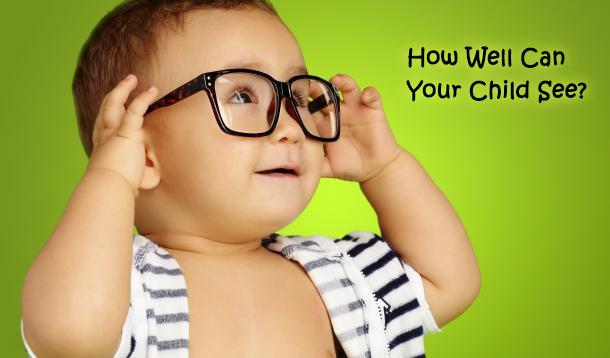
My husband has been wearing glasses since he was 5 years old and is almost blind without them. To put his contact lenses in, he holds the case mere centimetres away from his face or else he can’t see.
My vision is also imperfect and I have been wearing contacts since adolescence. Because both of us have less-than-perfect vision, we were eager to ensure our kids had their eyes examined before they started school. To be sure our eldest, Dylan, wasn’t missing out on seeing the world clearly, we had his eyes examined by a Doctor of Optometry when he was 2. Our youngest will be examined this year as well.
The pre-school eye exam evaluates tracking, focus, and how the eyes move in tandem. These things are necessary to develop fine motor skills, hand-eye-coordination, and visual perception abilities. I generally recommend all kids see a Doctor of Optometry when they are 2 to 3 years of age, but infants can have their first eye examination between six and nine months of age.
If your child is experiencing any of the following, you may want to have him or her checked out even sooner for peace of mind:
Did you know that one in four school-aged children has a vision problem?
80% of a child’s learning and development is obtained through vision, so it is especially important to find out if your child’s vision is good to ensure optimal success. Many vision problems in children have little or no symptoms and some kids will accept their vision problem as normal because they assume everyone sees the way they do. In my medical practice, many parents ask me if the problems their child is having at school could be related to vision. My response is always the same — absolutely. Poor vision is an easy thing to rule out before investigating for other problems.
Take a look at this:
October is Children’s Vision Month, so right now is a great time to get them checked, even if you don't suspect that they are having issues.
Bringing your child to a Doctor of Optometry for the first time can be a little scary for him or her. Here are some tips I used to help our son prepare for his first eye exam:
The earlier we identify a vision problem, the sooner it can be addressed and a treatment implemented. This will help ensure your children reach their best possible potential with excellent vision skills.
Did you know your child could have problems seeing things clearly and not even know it? Don’t make the mistake of thinking you’ll know if your child has a vision problem.
Visit Doctors of Optometry to find a Doctor of Optometry near you.

This post is brought to you by Doctors of Optometry Canada.
www.doctorsofoptometry.ca
Connect with the Doctors of Optometry Canada on Facebook: https://www.facebook.com/AskaDoctorofOptometry